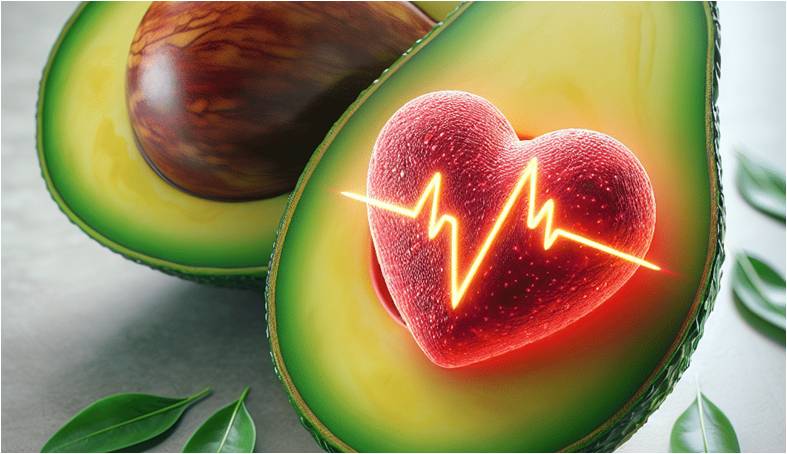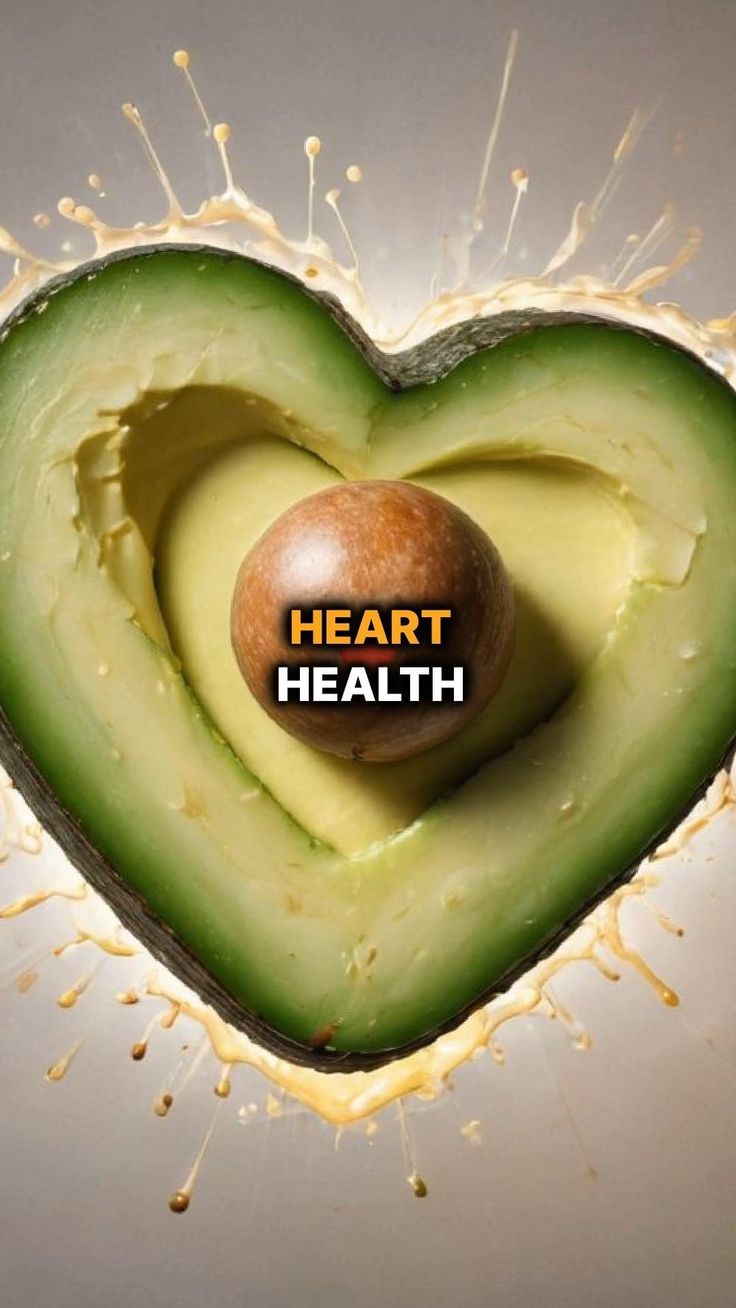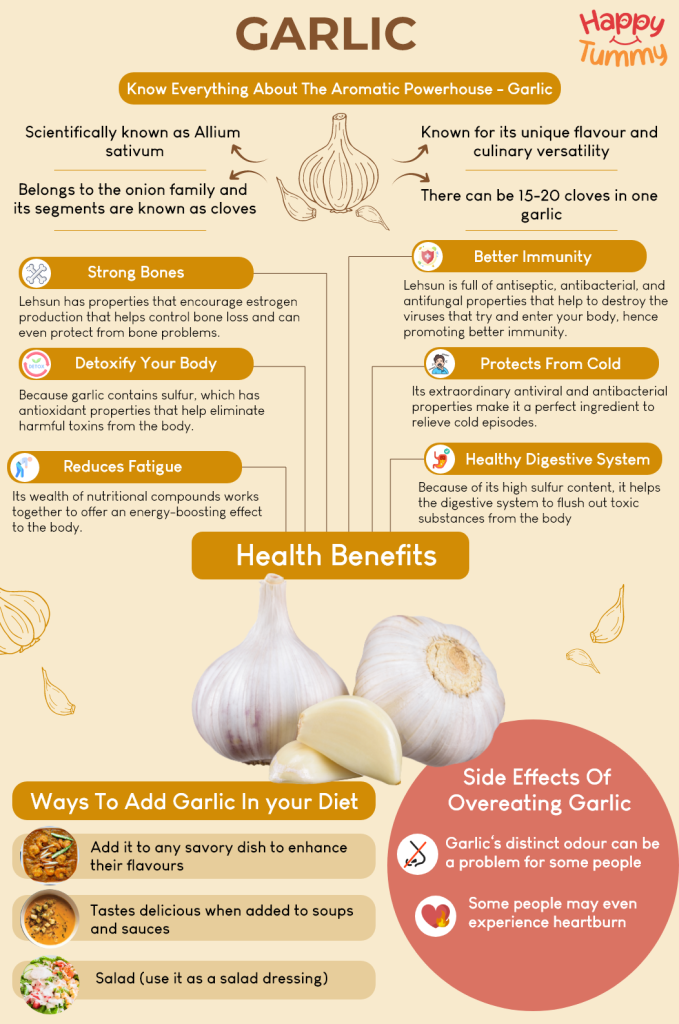The Power of the Pit: How Avocados Protect Your Heart
In the sprawling tapestry of human diet, few foods have undergone such a dramatic re-evaluation as the humble avocado. Once dismissed by some as an overly fatty, caloric indulgence, this emerald fruit has ascended to the pinnacle of superfood status, celebrated not just for its creamy texture and versatility but, more profoundly, for its remarkable contributions to cardiovascular health. The journey of the avocado, from ancient Mesoamerican staple to global culinary icon and scientific marvel, tells a compelling story – one deeply intertwined with our understanding of nutrition, fat, and the intricate mechanisms that govern the human heart.
This isn’t merely a nutritional treatise; it’s an odyssey into the heart of a fruit, tracing its lineage, dissecting its complex chemistry, and illuminating the scientific discoveries that have unveiled its profound protective powers. For the knowledgeable palate and inquisitive mind, the story of the avocado and the heart is a testament to nature’s ingenious design, offering a blueprint for a healthier, longer life, encapsulated within its velvety green flesh and often-discarded, yet potent, pit.
A Journey Through Time: The Ancient Lineage of the Alligator Pear
To truly appreciate the avocado’s modern significance, we must first travel back in time, far beyond the sleek supermarket aisles and trendy brunch plates. The origins of Persea americana are rooted deep in the prehistory of Mesoamerica, flourishing in what is now south-central Mexico. Archaeological evidence suggests that avocados have been consumed by humans for at least 10,000 years, making them one of the oldest cultivated crops in the Americas.
Imagine a primordial landscape, where colossal megafauna roamed – giant ground sloths, gomphotheres, and toxodons. These magnificent beasts, with their massive digestive systems, were the primary dispersers of avocado seeds. The large, stony pit, seemingly designed for passage through a megafauna’s gut, points to an ancient co-evolution, a testament to the fruit’s enduring strategy for survival and propagation. With the eventual extinction of these megafauna, the avocado’s fate became increasingly linked to human intervention.
It was the indigenous civilizations of Mesoamerica – the Olmecs, Mayans, and most notably, the Aztecs – who truly domesticated and cultivated the avocado. They called it "ahuacatl," a word that, perhaps due to its shape, also translated to "testicle." Far from being a mere curiosity, the avocado was a dietary cornerstone, a rich source of energy and nutrients in a world where food security was often precarious. It was prized not only for its sustenance but also, reputed as an aphrodisiac and a symbol of fertility.
When Spanish conquistadors arrived in the 16th century, they encountered this peculiar fruit. Bernal Díaz del Castillo, chronicler of Cortés’s expedition, was among the first Europeans to describe it, though early accounts often struggled with its unique texture and flavor, alien to European palates. The Spanish introduced the avocado to other parts of the world, initially to other colonies in the Americas, and eventually across the Atlantic to Europe and beyond. However, its spread was slow, hindered by its perishable nature and the delicate balance required for its cultivation.
For centuries, the avocado remained a regional specialty, cultivated in warm climates from the Caribbean to parts of Asia. It wasn’t until the 19th and early 20th centuries that it began its true global ascent, particularly with the establishment of commercial groves in California and Florida. Yet, even then, its journey was fraught with misperception.
The mid-20th century saw the rise of the "fat-is-bad" dogma, a well-intentioned but ultimately flawed dietary paradigm that demonized all dietary fats indiscriminately. In this climate, the avocado, with its relatively high-fat content compared to other fruits, was unfairly relegated to the "avoid" list for many health-conscious individuals. It was seen as a caloric bomb, a dietary villain contributing to weight gain and, ironically, heart disease. This period of vilification represents a fascinating detour in the avocado’s narrative, a time when scientific understanding lagged behind cultural fears.
Fortunately, the tide began to turn. As nutrition science matured, distinguishing between beneficial and detrimental fats, the avocado underwent a profound rehabilitation. Researchers began to peel back the layers of its composition, revealing not a dietary menace, but a nutritional powerhouse, particularly for the cardiovascular system. The story of the avocado’s re-emergence is, in many ways, the story of modern nutritional science itself – a journey from simplistic assumptions to nuanced understanding, revealing the complex symphony of compounds that truly define healthy eating.
The Heart of the Matter: Deconstructing the Avocado’s Nutritional Profile
The true power of the avocado lies in its intricate nutritional matrix, a synergistic blend of fats, fiber, vitamins, minerals, and phytochemicals, all working in concert to fortify the cardiovascular system. Unlike many fruits dominated by carbohydrates, the avocado stands apart as a rich source of healthy fats, making it a unique and invaluable addition to a heart-protective diet.
1. Monounsaturated Fatty Acids (MUFAs): The Star Players
The undisputed champions of the avocado’s heart-healthy profile are its monounsaturated fatty acids (MUFAs), primarily oleic acid. Constituting roughly 70-80% of the avocado’s total fat content, oleic acid is the same beneficial fat found abundantly in olive oil, a cornerstone of the Mediterranean diet – itself renowned for its cardiovascular benefits.
The mechanism by which MUFAs protect the heart is multi-faceted:
- Cholesterol Modulation: Oleic acid is particularly effective at lowering levels of low-density lipoprotein (LDL) cholesterol, often dubbed "bad" cholesterol, which contributes to arterial plaque formation. Crucially, it does so without adversely affecting high-density lipoprotein (HDL) cholesterol, the "good" cholesterol that helps remove excess cholesterol from arteries. This favorable lipid profile significantly reduces the risk of atherosclerosis.
- Inflammation Reduction: Chronic low-grade inflammation is a major driver of cardiovascular disease. MUFAs, including oleic acid, possess potent anti-inflammatory properties. They can downregulate inflammatory pathways and markers in the body, helping to protect blood vessels from damage.
- Improved Insulin Sensitivity: MUFAs have been shown to enhance insulin sensitivity, which is vital for maintaining healthy blood sugar levels. Improved insulin sensitivity reduces the risk of type 2 diabetes, a significant risk factor for heart disease.
- Oxidative Stress Protection: While not direct antioxidants themselves, MUFAs can make LDL particles more resistant to oxidation, a process that makes them more atherogenic (plaque-forming).
2. Dietary Fiber: The Unsung Hero
Beyond its luscious fats, the avocado is an excellent source of dietary fiber, both soluble and insoluble. A single medium avocado can provide around 10-13 grams of fiber, a substantial portion of the recommended daily intake.
- Soluble Fiber: This type of fiber dissolves in water to form a gel-like substance in the digestive tract. It plays a crucial role in heart health by binding to cholesterol in the small intestine, preventing its absorption into the bloodstream and facilitating its excretion. This mechanism directly contributes to lowering blood cholesterol levels. Soluble fiber also helps regulate blood sugar by slowing down glucose absorption, further benefiting cardiovascular health by mitigating insulin spikes.
- Insoluble Fiber: While not directly affecting cholesterol, insoluble fiber adds bulk to stool, promoting regular bowel movements and gut health. A healthy gut microbiome, increasingly recognized as vital for overall health, including cardiovascular wellness, benefits from a fiber-rich diet. Furthermore, fiber contributes to satiety, helping individuals feel fuller for longer, which can aid in weight management – a critical factor in preventing obesity, a major risk factor for heart disease.
3. Potassium: The Electrolyte Guardian
Avocados are remarkably rich in potassium, an essential mineral and electrolyte critical for maintaining healthy blood pressure. In fact, an avocado contains more potassium than a banana, often touted as the quintessential potassium source.
- Blood Pressure Regulation: Potassium counteracts the effects of sodium in the body. Sodium tends to raise blood pressure by increasing fluid retention, while potassium helps to excrete excess sodium through urine and relax blood vessel walls. This sodium-potassium balance is fundamental for preventing hypertension, a leading cause of heart attacks and strokes.
- Fluid Balance and Nerve Function: Beyond blood pressure, potassium is vital for maintaining proper fluid balance, muscle contractions, and nerve signal transmission, all indirectly supporting overall cardiovascular function.
4. Phytosterols: Nature’s Cholesterol Blockers
Avocados contain a significant amount of phytosterols, plant compounds structurally similar to cholesterol. The most prominent phytosterol in avocados is beta-sitosterol.
- Competitive Absorption: When consumed, phytosterols compete with dietary cholesterol for absorption in the gut. By occupying the same absorption sites, they effectively reduce the amount of cholesterol that enters the bloodstream, thereby contributing to lower LDL cholesterol levels. This natural mechanism offers a gentle yet effective way to manage cholesterol.
5. Antioxidants and Phytochemicals: The Cellular Defenders
The avocado is a treasure trove of vitamins, minerals, and various phytochemicals that exert powerful antioxidant and anti-inflammatory effects, crucial for protecting the heart at a cellular level.
- Carotenoids: Avocados are rich in lutein and zeaxanthin, carotenoids typically associated with eye health. However, these powerful antioxidants also accumulate in the arterial walls, where they help prevent oxidative damage to LDL cholesterol and reduce inflammation, thus inhibiting the progression of atherosclerosis.
- Vitamin E: This fat-soluble antioxidant is vital for protecting cell membranes from oxidative stress. In the context of heart health, Vitamin E helps prevent the oxidation of LDL cholesterol, a key step in plaque formation.
- Vitamin C: Though present in smaller amounts than in citrus fruits, Vitamin C in avocados contributes to collagen synthesis, which is essential for maintaining the integrity of blood vessel walls. It also acts as a potent antioxidant, neutralizing free radicals.
- B Vitamins (Folate): Avocados are a good source of folate (Vitamin B9). Folate plays a critical role in metabolizing homocysteine, an amino acid whose elevated levels are considered an independent risk factor for cardiovascular disease. By helping to convert homocysteine into other compounds, folate helps reduce this risk.
- Polyphenols: Like many plant foods, avocados contain various polyphenolic compounds that possess broad-spectrum antioxidant and anti-inflammatory properties, further contributing to vascular health and cellular protection.
- Other Micronutrients: Magnesium, Vitamin K, and other trace minerals found in avocados also contribute to various physiological processes that indirectly support cardiovascular health, from muscle function to blood clotting regulation.
The sheer density and diversity of these beneficial compounds within the avocado create a powerful synergistic effect. It’s not just one nutrient working in isolation but a harmonious orchestra of elements, each playing its part in the grand symphony of cardiovascular protection.
The Science Unveiled: Clinical Evidence and Research
While the historical and nutritional profiles of the avocado paint a compelling picture, the true validation of its heart-protective powers comes from rigorous scientific investigation. Over the past few decades, a growing body of clinical and epidemiological research has consistently underscored the avocado’s role in promoting cardiovascular health.
The initial understanding of the avocado’s benefits stemmed from broader observations. The Mediterranean diet, rich in monounsaturated fats from sources like olive oil and avocados, has long been associated with lower rates of heart disease. This led researchers to hypothesize that the specific components of these foods, particularly MUFAs, were key protective factors.
Specific Avocado Intervention Studies:
As scientific interest in functional foods grew, studies began to focus specifically on the avocado. These studies often involved participants consuming avocados daily or replacing other fats with avocado, then measuring various biomarkers of cardiovascular risk.
- Cholesterol-Lowering Trials: Numerous controlled clinical trials have demonstrated the avocado’s ability to favorably modulate lipid profiles. A landmark meta-analysis published in the Journal of the American Heart Association examined the effects of avocado consumption on cardiovascular risk factors. It concluded that avocado intake significantly reduced total cholesterol and LDL cholesterol levels, particularly in individuals who were overweight or obese, or who had elevated cholesterol at baseline. Some studies even showed a modest increase in beneficial HDL cholesterol. The mechanism, as discussed, relates to the high oleic acid and fiber content, which collectively improve lipid metabolism and reduce cholesterol absorption.
- Blood Pressure Studies: While not as dramatic as some pharmaceutical interventions, regular avocado consumption has been linked to modest improvements in blood pressure. The rich potassium content is the primary driver here, helping to counteract sodium and promote vasodilation. Studies have shown that diets rich in potassium and low in sodium are effective strategies for preventing and managing hypertension.
- Impact on Post-Meal Vascular Function: Beyond chronic effects, research has explored the immediate impact of avocado consumption. Some studies have shown that adding avocado to a meal can attenuate postprandial (after-meal) endothelial dysfunction and oxidative stress, which are transient but repeated events that contribute to long-term arterial damage. This suggests that avocados can help mitigate the acute stress meals place on the cardiovascular system.
- Role in Metabolic Syndrome Management: Metabolic syndrome, a cluster of conditions including abdominal obesity, high blood pressure, high blood sugar, and abnormal cholesterol levels, significantly increases the risk of heart disease and type 2 diabetes. Studies have indicated that incorporating avocados into the diet can improve several markers of metabolic syndrome, including lipid profiles, blood sugar control, and waist circumference, thereby reducing overall cardiovascular risk.
- Weight Management and Satiety Studies: Obesity is a major independent risk factor for heart disease. While avocados are calorie-dense, research has shown that their unique combination of healthy fats and fiber promotes satiety, leading to reduced overall calorie intake later in the day. A study published in Nutrition Journal found that adding half an avocado to lunch significantly increased feelings of fullness and reduced the desire to eat over the subsequent hours. By helping individuals feel more satisfied and potentially reducing snacking, avocados can play a supportive role in weight management strategies, indirectly benefiting heart health.
- Gene Expression and Cellular Mechanisms: Advanced research is delving into how avocado compounds interact at a genetic and cellular level. Studies are exploring how specific phytochemicals in avocados can influence gene expression related to lipid metabolism, inflammation, and cellular signaling pathways, offering a deeper understanding of their protective mechanisms. For instance, some research suggests that avocado compounds may activate pathways that promote the breakdown of fats and inhibit the synthesis of cholesterol in the liver.
Meta-analyses and Reviews:
The culmination of individual studies is often synthesized into meta-analyses and systematic reviews, which provide a higher level of evidence by pooling data from multiple investigations. These comprehensive analyses consistently reinforce the conclusion that avocado consumption is associated with improved cardiovascular health outcomes, including reduced risk factors for heart disease. They often highlight the dose-response relationship, suggesting that regular, moderate consumption yields the most consistent benefits.
It’s important for a knowledgeable audience to understand that these studies are rigorous, often employing randomized controlled trials, which are considered the gold standard in nutritional science. While the avocado is not a magic bullet, the cumulative evidence strongly positions it as a powerful dietary tool in the prevention and management of cardiovascular disease. The scientific narrative unequivocally supports the avocado’s journey from misunderstood fat to celebrated heart protector.
The Avocado in Practice: Integrating it into a Heart-Healthy Lifestyle
Understanding the science is one thing; translating it into daily practice is another. For the knowledgeable consumer, integrating avocados into a heart-healthy lifestyle isn’t just about adding a trendy ingredient; it’s about making informed choices that leverage its unique nutritional advantages. The versatility of the avocado makes this surprisingly easy, extending far beyond the ubiquitous guacamole.
Beyond Guacamole: Culinary Versatility
While guacamole remains a beloved classic, the avocado’s creamy texture and mild flavor allow it to be incorporated into a vast array of dishes, enhancing both taste and nutritional value.
- Salads: Cubed or sliced avocado adds richness, healthy fats, and satiety to any salad. It pairs beautifully with leafy greens, lean proteins, and other colorful vegetables, creating a nutrient-dense meal.
- Smoothies: For a quick and easy nutritional boost, half an avocado can be blended into smoothies, contributing a silky texture, healthy fats, and fiber without overpowering other flavors. It’s an excellent way to make smoothies more filling and less sugar-spike inducing.
- Toast and Sandwiches: Avocado toast, a modern classic, is a simple yet effective way to enjoy the fruit. Mash it onto whole-grain bread, season with salt, pepper, and chili flakes, and perhaps top with a poached egg for added protein. In sandwiches, avocado can replace less healthy spreads like mayonnaise, offering a creamy texture with superior nutritional benefits.
- Baking and Desserts: Unripe avocados, when blended, can serve as a healthy fat replacement in baking, adding moisture and richness to brownies, muffins, or even vegan chocolate mousses, where its green hue is often masked by cocoa.
- Savory Dishes: Sliced avocado can accompany grilled fish, chicken, or tofu, providing a creamy counterpoint to lean proteins. It can be added to tacos, burritos, or grain bowls for an extra layer of flavor and nutrition.
- As a Healthy Fat Source: Use avocado as a primary fat source in meals, reducing reliance on less healthy saturated or trans fats. For example, instead of a creamy, dairy-based dressing, consider an avocado-based dressing.
Portion Control and Mindful Eating
Despite its myriad benefits, the avocado is calorie-dense due to its healthy fat content. For a knowledgeable audience, the concept of "portion control" is not about fear, but about mindful consumption within the context of overall energy needs. A typical serving is about one-fifth to one-half of a medium avocado. While daily consumption is beneficial, balancing it with other nutrient-dense foods is key to a holistic heart-healthy diet.
Synergy with Other Heart-Healthy Foods
The avocado doesn’t work in isolation. Its benefits are amplified when consumed as part of a broader dietary pattern rich in other heart-protective foods:
- Leafy Greens: The fat in avocados helps the body absorb fat-soluble vitamins (A, D, E, K) and carotenoids from other vegetables, making salads even more effective.
- Whole Grains: Pairing avocado with whole grains (oats, quinoa, brown rice) provides a powerful combination of fiber, healthy fats, and complex carbohydrates for sustained energy and cholesterol management.
- Lean Proteins: Avocado can complement lean protein sources like fish (especially fatty fish rich in omega-3s), legumes, and poultry, creating balanced and satisfying meals.
- Nuts and Seeds: These provide additional healthy fats, fiber, and micronutrients, creating a synergistic effect with avocados in supporting heart health.
Dispelling Common Myths
Even among knowledgeable individuals, some lingering misconceptions about avocados may persist:
- "Too much fat": Reiterate the distinction between healthy (MUFA) and unhealthy fats. The fat in avocados is precisely what makes it beneficial.
- "Too many calories": While calorie-dense, its satiety-promoting effects often lead to reduced overall intake, making it a valuable tool for weight management rather than a hindrance.
- "Only eat the flesh": While the pit and skin are not typically consumed, ongoing research is exploring potential health benefits of extracts from these parts, particularly for their antioxidant and anti-inflammatory compounds. However, for practical consumption, the flesh remains the focus.
Sustainable Sourcing and Ethical Considerations (Briefly)
For the environmentally conscious and knowledgeable consumer, a brief mention of sustainable sourcing is relevant. The global demand for avocados has raised concerns about water usage and land conversion in some growing regions. Choosing sustainably sourced avocados, when possible, aligns with a holistic approach to health that extends beyond the individual to the planet.
By embracing the avocado not just as a food, but as a testament to informed nutrition, individuals can harness its power to significantly bolster their cardiovascular defenses, making every bite a step towards a healthier heart.
The Pit’s Promise: A Metaphor for Future Health
The journey of the avocado, from its primordial roots in Mesoamerica to its celebrated status on the global stage, is a compelling narrative of discovery, re-evaluation, and profound scientific understanding. It is a story that mirrors our evolving comprehension of nutrition itself – moving from simplistic notions of "fat is bad" to a nuanced appreciation of the intricate roles different fats, fibers, and micronutrients play in human health.
The "power of the pit" is a metaphor, not just for the often-discarded seed itself, but for the inherent, concentrated promise of vitality contained within this extraordinary fruit. Each creamy bite delivers a symphony of compounds meticulously crafted by nature: the heart-protective monounsaturated fats that modulate cholesterol and quell inflammation; the dual-action dietary fiber that binds cholesterol and nourishes the gut; the blood pressure-regulating potassium; the cholesterol-blocking phytosterols; and the army of antioxidants and phytochemicals that guard our cells against oxidative stress.
The scientific evidence is robust and continually expanding, demonstrating unequivocally that regular avocado consumption is a tangible strategy for reducing key cardiovascular risk factors. It’s a natural intervention that works on multiple fronts, offering a holistic defense against the modern epidemic of heart disease.
Yet, the avocado is not a solitary hero. Its true power is unleashed when integrated into a lifestyle that embraces mindful eating, diverse whole foods, regular physical activity, and stress management. It serves as a potent reminder that optimal health is a complex tapestry, woven with daily choices and a deep respect for the nourishment nature provides.
As we look to the future, the avocado stands as a symbol of informed dietary choices. Its story encourages us to remain curious, to question conventional wisdom, and to continually seek knowledge that empowers us to live healthier, more vibrant lives. The simple, elegant gift of the avocado, with its rich history and undeniable scientific backing, offers a clear path forward – a delicious, satisfying, and profoundly effective way to protect the very core of our being: our heart. Its journey from ancient staple to modern superfood is complete, but its promise for our health continues to grow, as potent and enduring as the life contained within its mighty pit.







